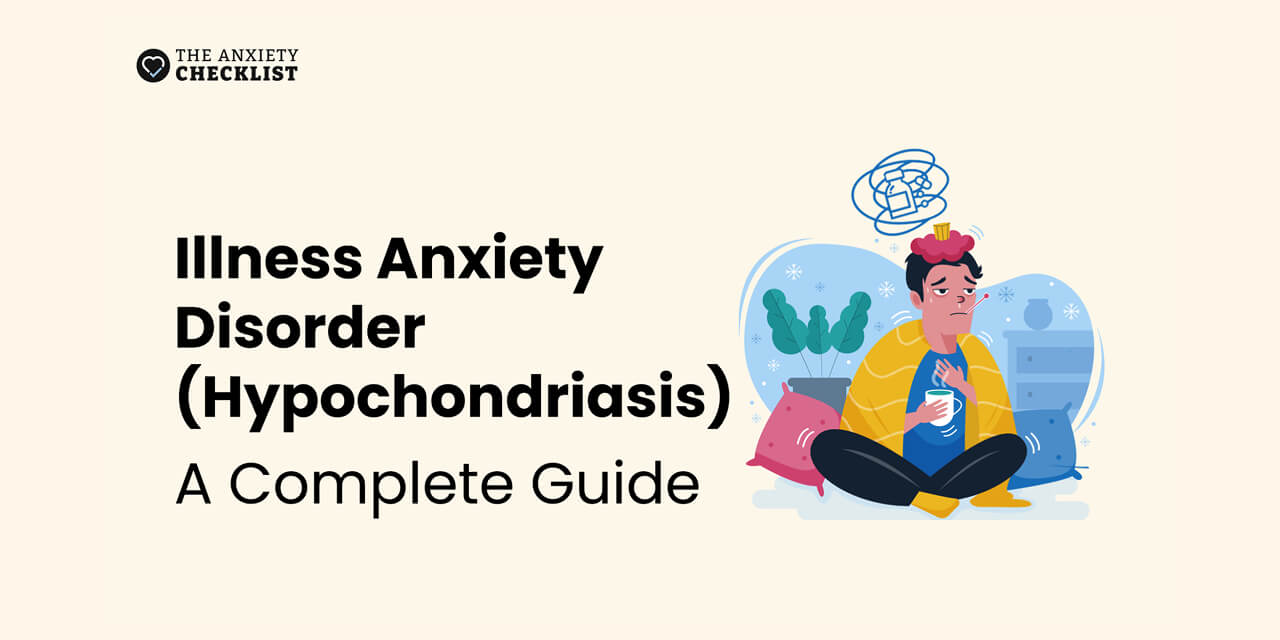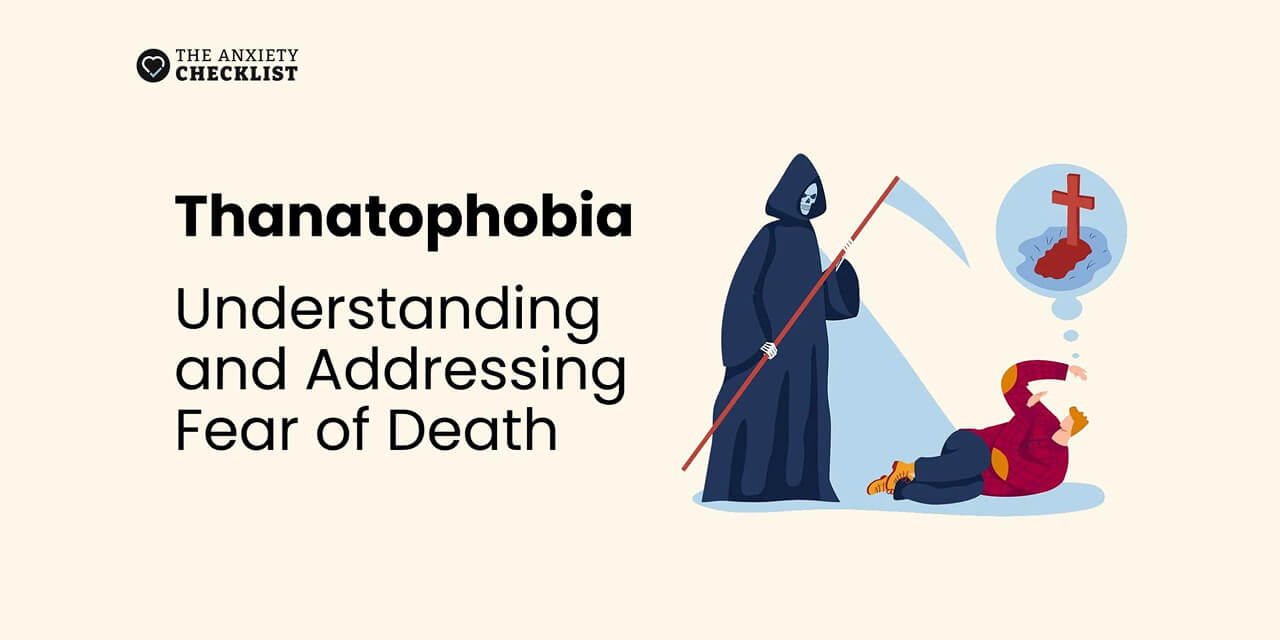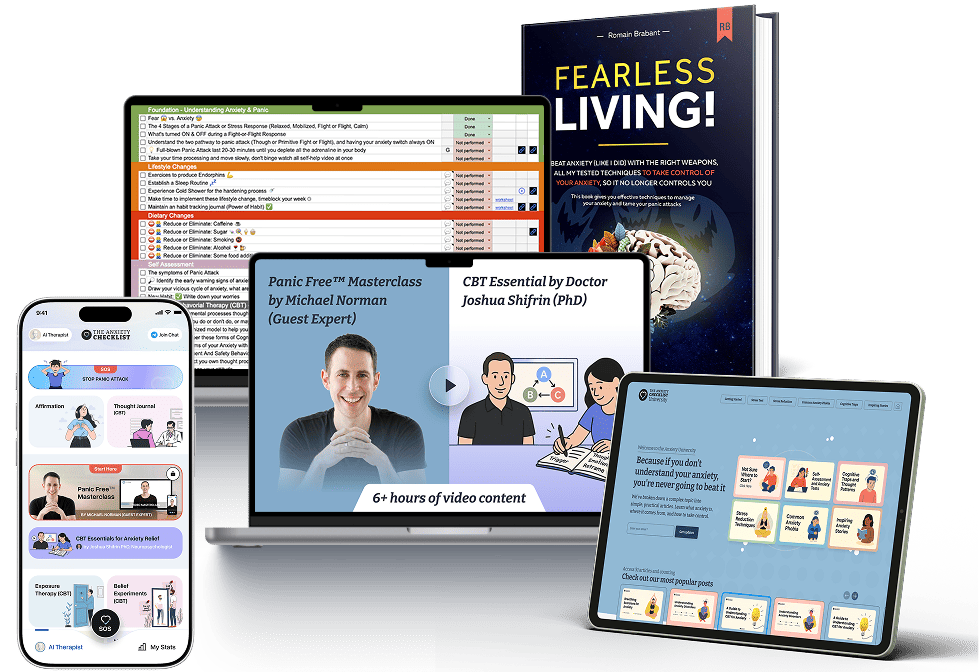When anxiety hits, do you know what to do next?
Learn how to calm your body, interrupt fear loops, and regain control step by step.
What Is Illness Anxiety Disorder?
Illness anxiety disorder (Hypochondriasis) happens when someone constantly worries about having a serious illness.
They fear cancer, heart problems, or other life-threatening conditions. These fears persist even when doctors find nothing wrong.
The American Psychiatric Association lists this condition in its Diagnostic and Statistical Manual. It replaced the older term "DSM-IV Hypochondriasis" in 2013.
Both names describe the same psychiatric condition with different labels.
Regular health concerns are normal. Everyone worries about symptoms sometimes.
However, illness anxiety disorder goes much further than typical worries.
People with Hypochondriasis spend hours each day thinking about their health status. They interpret normal body sensations as signs of disease.
For instance, chest tightness could mean heart failure.
Hypochondriasis comes in two main types, each involving different behaviors around medical care.
Care-Seeking Type
People with this hypochondriasis type visit doctors frequently and request many medical tests.
They ask family members for constant reassurance about symptoms. Or they research medical conditions online for hours
Care-Avoidant Type
People under this hypochondriasis category avoid doctors completely because they fear bad news.
They won't schedule routine checkups or cancer screenings. And they refuse to read health information or watch medical shows.
Both types of hypochondriasis involve the same core fear of having an undiagnosed medical illness. The difference is in how people respond to that fear.
Some seek excessive medical attention, while others avoid it entirely.
Understanding these patterns helps identify when normal health awareness crosses into illness anxiety disorder territory.
Causes and Risk Factors of Hypochondriasis
There isn't one health anxiety cause, but several factors often overlap. Illness anxiety disorder develops from a mix of biological and environmental influences.
Understanding these factors helps explain why some people develop this mental health condition.
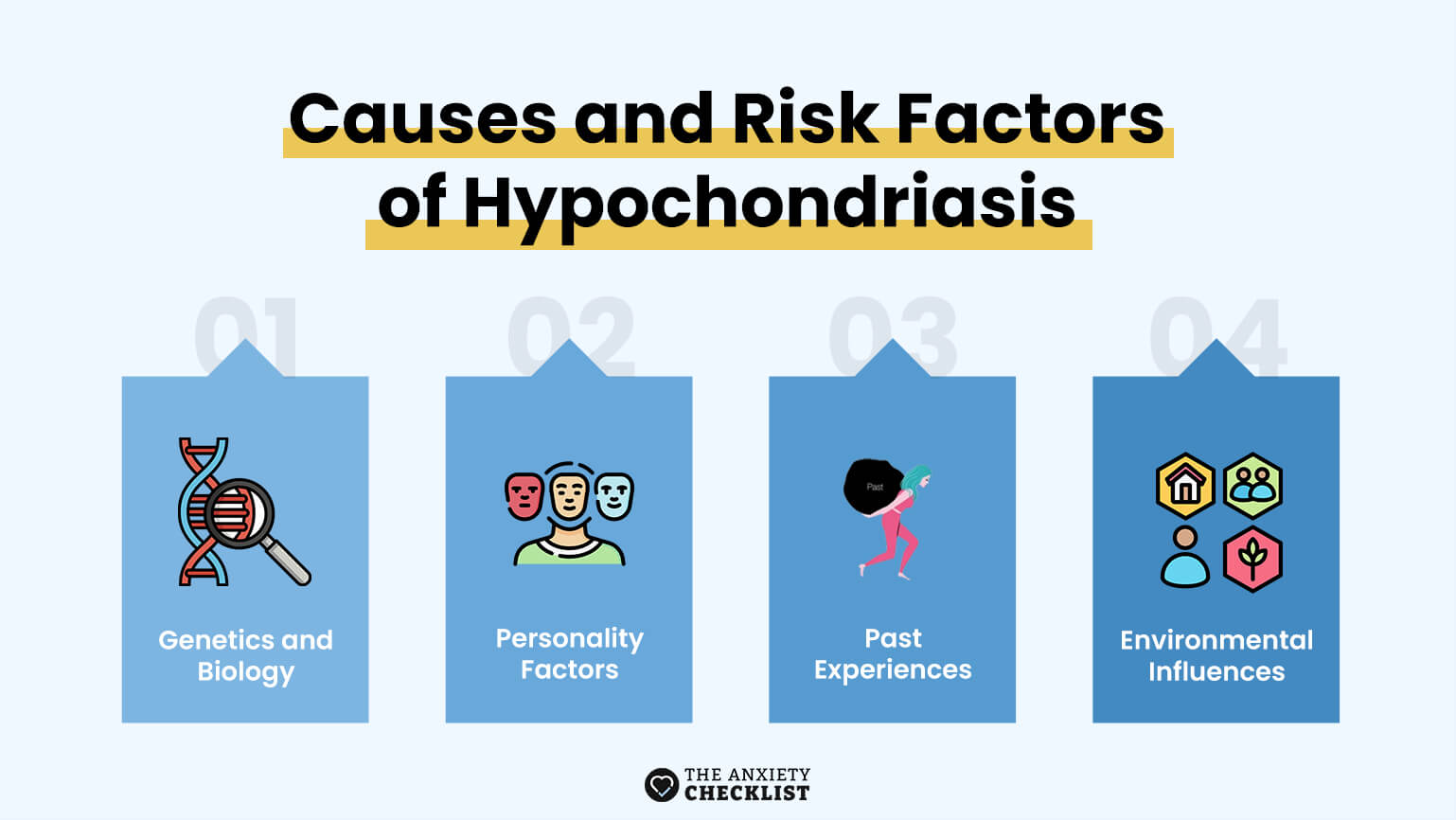
1. Genetics and Biology
Your family history plays a role in developing hypochondriasis. People with anxious relatives have higher chances of developing mental health issues themselves.
Brain chemistry differences also contribute to persistent worry patterns.
Some people are born more sensitive to stress, so their nervous systems react strongly to minor physical sensations. This heightened sensitivity makes them notice every small change in their bodies.
2. Personality Factors
Certain personality traits lead to a high risk of illness anxiety disorder.
People who struggle with uncertainty often develop health fears. They need frequent reassurance that everything is okay. Perfectionist tendencies also contribute to this condition.
These individuals expect their bodies to function perfectly at all times, and any deviation from good health feels threatening to them.
3. Past Experiences
Childhood illness experiences often shape how we view health and illness.
Growing up around a parent with a serious illness can create lasting phobias and anxiety fears. Witnessing a family member's health crisis can trigger anxiety responses later.
Previous personal health scares also matter.
Someone who has had a serious illness may develop ongoing fears. They worry the condition will return or that other diseases will develop.
4. Environmental Influences
Constant access to health information online feeds anxiety patterns.
Medical websites list every possible symptom and serious medical condition. This information overload can make mild symptoms seem more severe.
Media coverage of diseases creates widespread health fears. News stories about cancer outbreaks or rare conditions stick in worried minds.
Social media discussions about health issues exacerbate these concerns.
These causes often shape how the disorder shows up in daily life. The combination of factors determines each person's specific pattern of mental health issues.
Symptoms and Daily Impact of Hypochondriasis
Hypochondriasis or illness anxiety disorder affects both mind and behavior.
The symptoms create a cycle that's hard to break. They interfere with work, relationships, and daily activities.
Let’s look at some of these symptoms.
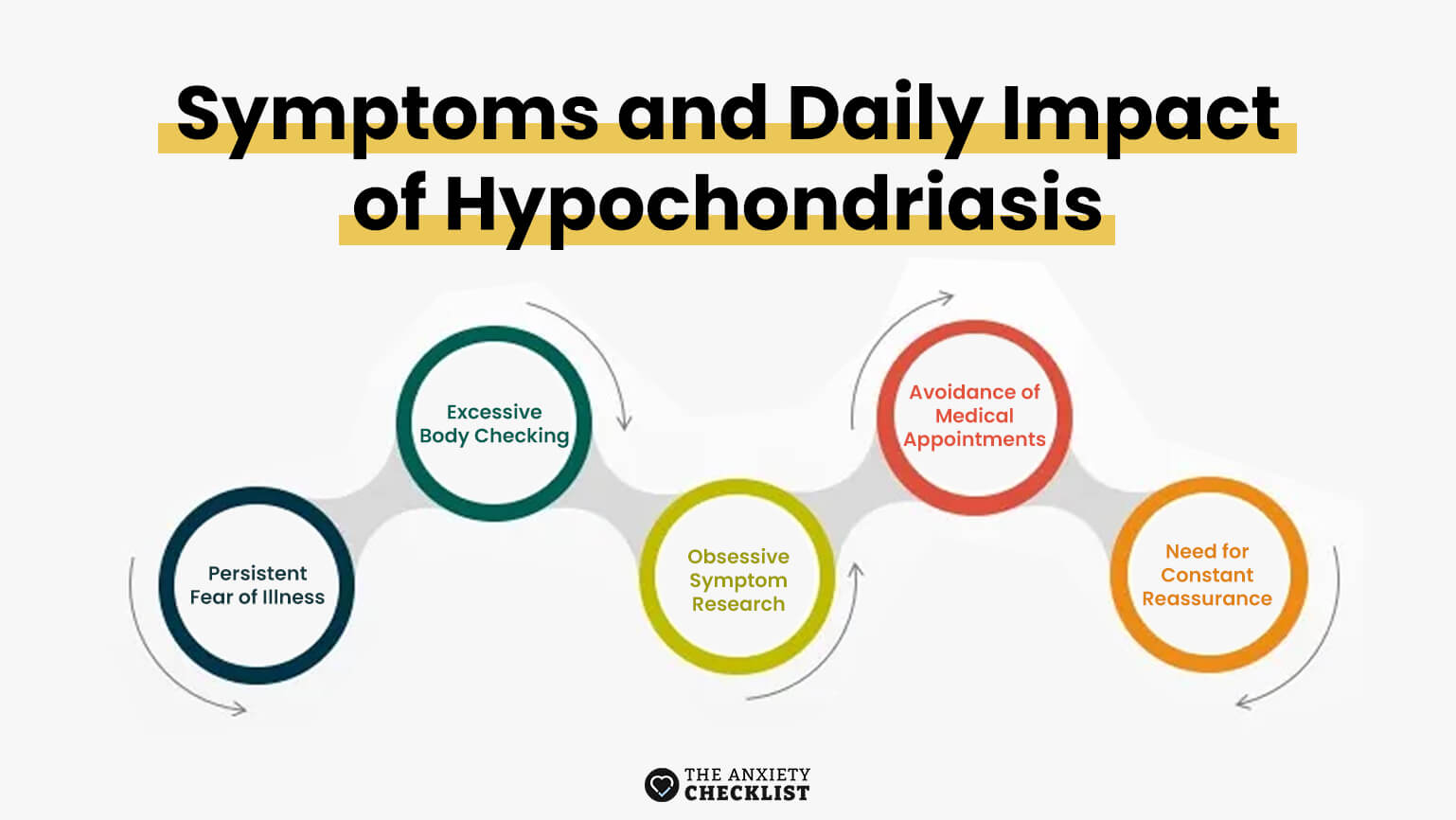
Mental Symptoms
People with hypochondriasis fear having undiagnosed diseases. They think about worst-case scenarios constantly.
A minor headache could lead to thoughts of life-threatening illness.
These anxious thoughts feel completely real and urgent. The fear doesn't go away even when there are people providing reassurance.
Normal test results only provide temporary relief before worries return.
Catastrophic thinking takes over daily life. Every bodily sensation gets analyzed for danger signs. The mind jumps to the scariest possible explanations first.
Behavioral Patterns
Body-checking becomes a daily habit for people with hypochondriasis. Those affected examine moles, lumps, or other marks repeatedly. They take their temperature multiple times per day.
Internet searches also consume hours for people suffering from this disorder. They research symptoms and diseases obsessively, and medical websites become their primary source of information.
Some people seek constant reassurance from family and friends or ask the same health questions over and over. Others call doctors frequently or schedule unnecessary medical appointments.
The care-avoidant type shows opposite behaviors. They refuse medical checkups completely. They won't read health information or discuss medical topics.
Physical Symptoms
Chronic overthinking from hypochondriasis often creates real physical symptoms. Stress causes muscle tension, headaches, and stomach issues.
These bodily symptoms then become new sources of health anxiety, which creates a vicious cycle of illness anxiety disorder.
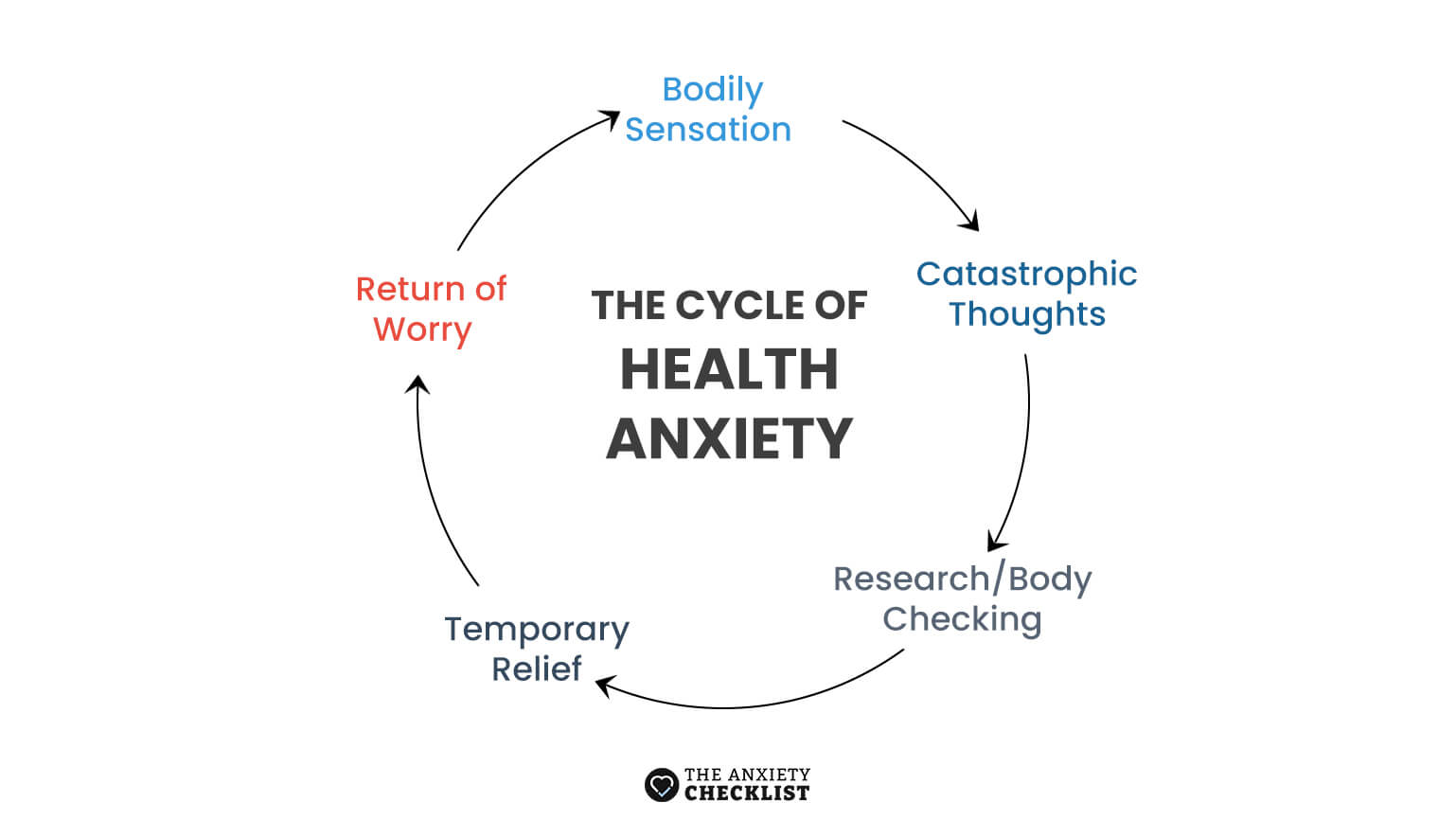
Sleep problems are common symptoms of illness anxiety disorder. Racing thoughts about health keep people awake at night.
Fatigue from poor sleep makes anxiety symptoms worse.
Emotional and Social Impact
Guilt often accompanies health fears for people with hypochondriasis. Those affected by this illness are often aware of their excessive worry.
They feel embarrassed about their constant need for reassurance.
Relationships suffer under the strain of ongoing health anxiety.
Family members get tired of providing reassurance repeatedly. Friends may avoid someone who only talks about health concerns.
Diagnosis of Illness Anxiety Disorder
Doctors diagnose illness anxiety disorder by looking at your thoughts and behaviors, not just test results.
They need to understand your worry patterns and how they affect daily life.
The process starts with ruling out actual medical problems. Your primary care provider will do a physical exam and order basic tests. This ensures you don't have real health conditions causing your symptoms.
Mental health professionals use specific criteria to diagnose illness anxiety disorder. These guidelines come from the official diagnostic manual that doctors follow worldwide.
Key Diagnostic Criteria
Related Conditions (Somatic Symptom Disorder)
It’s worth mentioning that illness anxiety disorder differs from somatic symptom disorder in important ways.
People with somatic symptom disorder focus more on actual physical symptoms. Those with illness anxiety disorder fear diseases they might have.
Both conditions involve excessive worrying about health concerns, but the key difference lies in whether few or no symptoms are present.
Your doctor will carefully evaluate which diagnosis fits your situation.
Finally, medical tests can't diagnose illness anxiety disorder directly. The diagnosis comes from understanding your thought patterns and behavioral responses to health concerns.
Treatment and Management of Illness Anxiety Disorder
Treatment for hypochondriasis works best when it combines therapy, lifestyle and dietary changes, and support.
Most people with illness anxiety disorder see significant improvement with proper care. Recovery takes time, but the right approach makes a real difference.
Let’s look at a few ways to treat or manage hypochondriasis.
Psychotherapy
Psychotherapy forms the foundation of treatment for illness anxiety disorder.
Several types of therapy have proven effective for mental health issues. They are:
Medication
Medication can help treat illness anxiety disorder when therapy alone isn't enough or anxiety feels overwhelming. Antidepressants often reduce the intensity of health fears.
SSRIs and SNRIs are the most commonly prescribed medications for illness anxiety disorder. These drugs help balance brain chemistry that affects anxiety levels. Bear in mind that they take several weeks to show full effects.
Always work with medical professionals when considering medication options. They'll monitor your progress and adjust doses as needed.
And never stop taking prescribed medications without medical supervision.
Lifestyle and Self-Care
Daily habits play a crucial role in managing hypochondriasis. Small changes can make a big difference in anxiety levels.
Regular exercise reduces overall anxiety and improves mood. Even short walks help clear anxious thoughts.
Sleep schedules matter, so aim for consistent times for sleeping and waking up.
Set strict limits on online symptom searches. Use website blockers during certain hours if needed.
Schedule specific "worry time" instead of thinking about health all day.
Also, journaling helps track worry patterns and anxiety triggers. Write down fears without immediately researching them online. This creates distance between thoughts and actions.
Support Systems
Family and friends play important roles in recovery from illness anxiety disorder. They need to learn healthy ways to respond to reassurance-seeking.
Support groups connect you with others who understand health anxiety. Shared experiences reduce feelings of isolation and shame.
When to Seek Professional Help
Self-help strategies work for mild symptoms of hypochondriasis, but some situations require professional support.
Recognizing when you need extra help prevents illness anxiety disorder from getting worse.
Here are some signs you need professional help:
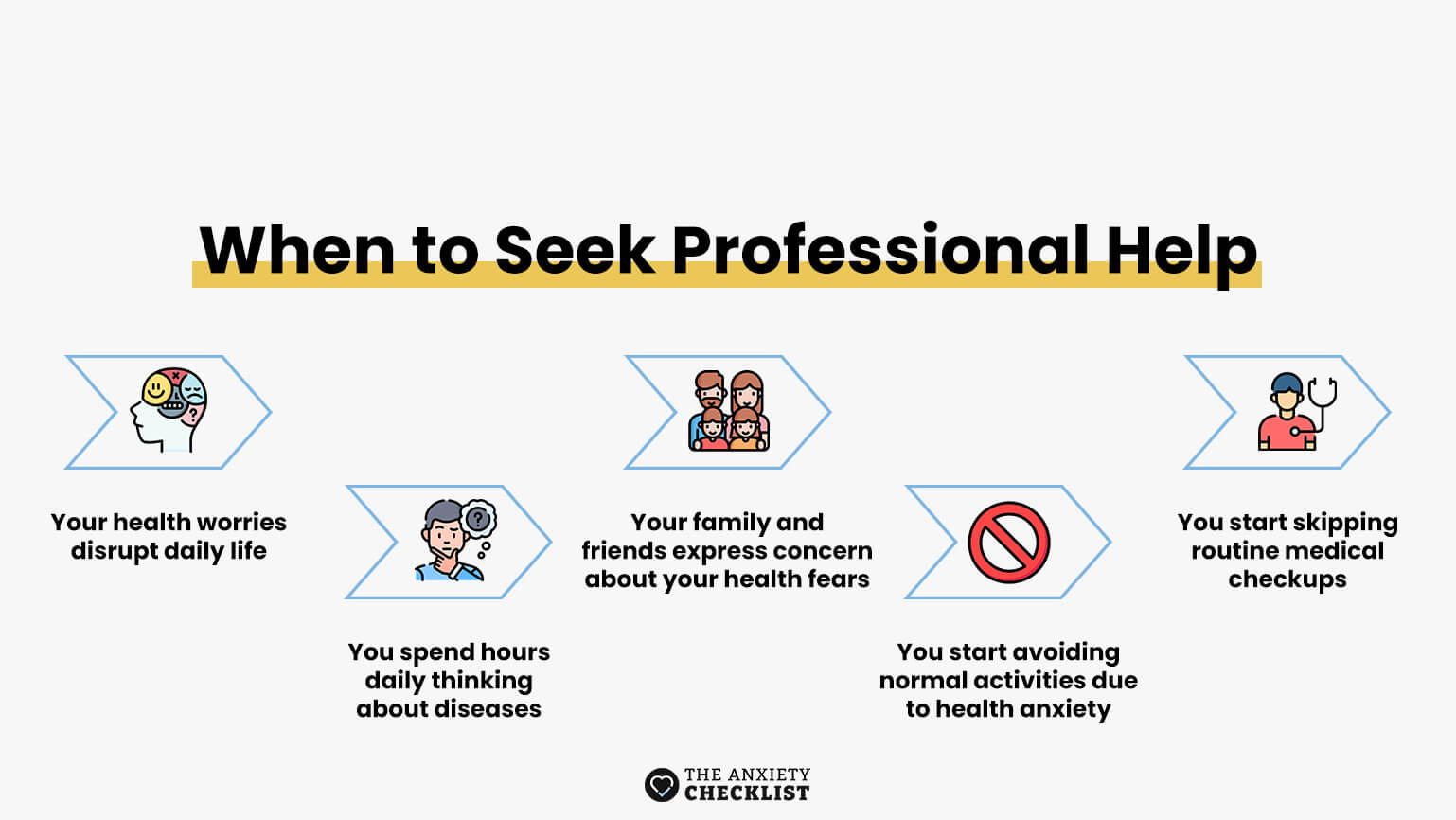
Early intervention works better than waiting until problems become severe.
Therapists who specialize in anxiety disorders understand hypochondriasis well. They have specific tools to help you manage health fears.
Reaching out for help shows strength, not weakness. Professional medical treatment gives you skills to manage anxiety that lasts a lifetime.
You don't have to struggle with health fears alone.
Frequently Asked Questions
Final Thoughts
Previous Article
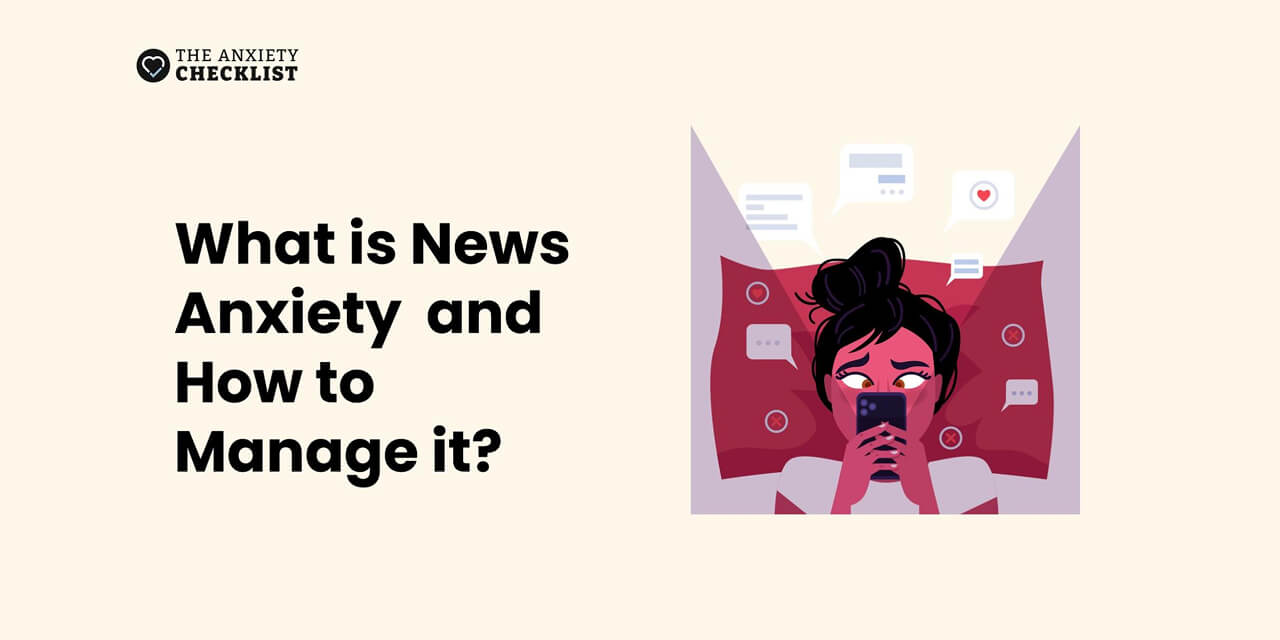
What is News Anxiety and How to Manage it?
If you are in a crisis or any other person may be in danger - don't use this site. These resources can provide you with immediate help.



